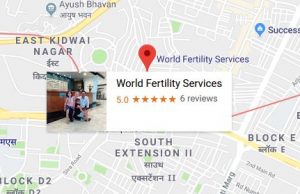Surrogate Mother: Helping for Infertile Couple
the Inevitable practice of medicine, the Derivation of modern living and the Reliance of healthy living house all at the medical industry. Coming fulsome of best-in-class, customer-oriented and reliable medical treatments and surgeries, the medical arena is all set to have affirmed one know Disease extinct.
Though those were the days that compelled one live with his/her disease till s/he would live, the current phase of medicine makes possible a clear silhouette of hale and hearty lifestyle. Here, worldfertilityservices.com is become all-hands to offering latest fertility treatments and surgeries including Surrogate Mother.
Know to Surrogate Mother
A surrogate mother is a woman who concurs to carry someone else’s baby. She becomes pregnant by using some form of assisted reproductive technology, commonly IVF. The surrogate mother bears the baby to term and gives birth, and the baby is released from the hospital to its intended parents.
What is a Surrogate Mother? A Gestational Carrier
To be a surrogate, many surrogate mothers are the gestational carriers. A gestational carrier becomes pregnant through IVF and gives birth to a baby that is not biologically related to her. Here is how it functions:
- An embryo is formed using either the intended parents’ or donor’s gametes.
- The surrogate mother’s eggs are not used.
- The embryo is produced using the very specialized assisted reproductive technology.
- One or more of these embryos is then transferred into the surrogate mother’s womb.
- The surrogate mother becomes pregnant and is then freed into the care of her own OB/GYN to get the prenatal care and for the delivery.
- The surrogate mother gives birth with the love and support of the intended parents, and the intended parents go home with their fortune of joy.
What is a Surrogate Mother? Traditional Surrogacy
Dissimilar to gestational surrogacy, a traditional surrogate is biologically related to the baby. Being a traditional surrogate is far less common as being a gestational carrier. Here is how it works:
- An embryo is formed using either the intended father’s or the donated sperm.
- The surrogate mother’s eggs are meant to produce the embryo through IVF or artificial insemination.
- The surrogate mother becomes pregnant and is then released into the care of her own OB/GYN to receive the prenatal care and for the delivery.
- The surrogate mother gives birth with the love and support of the intended parents and the intended parents go home with joy.
Why isn’t Surrogate’s name on the Birth Certificate?
Many people do question on why the surrogate mother’s name is not on the baby’s birth certificate. After all, she gave the birth at the hospital. How does the hospital know whose names to put on the birth certificate? Here is how it works:
- When the surrogate mother is about 4-5 months pregnant, the intended parents will start the legal work necessary to have their names put on the baby’s birth certificate.
- The surrogate mother and her spouse/partner, if she has one, and the intended parents will sign court documents requiring a judge to issue an order. This order is likely to tell the hospital to put the intended parents’ names on the birth certificate, not the surrogate mother’s.
- Also, the judge’s order is to tell the hospital to release the baby to the intended parents, not the surrogate mother.
- The intended parents and surrogate mother carry this order with them to the hospital on delivery day to ensure the birth clerk completes the birth certificate appropriately and the baby is released to its intended parents.
Who Uses Surrogates?
A woman might settle on to use a surrogate for several reasons:
- She may have medical problems with her uterus.
- She may have had a hysterectomy that removed her uterus.
- There may be conditions that make pregnancy impossible or medically dangerous, such as severe heart disease.
Other women wish surrogacy after trying ineffectively to get pregnant with an assortment of assisted-reproduction techniques (ART), such as IVF. Also surrogates have made parenthood an option for people who might not be able to adopt a child. Here is reasons could include:
- Their age
- Their marital status
- Their sexual orientation
Finding a Surrogate
Here, there are several ways to find a surrogate mother:
Friends or family: Some people ask a friend/relative to be a surrogate for them. Executing so is rather controversial. But given the high cost of surrogacy and the complex legal issues it raises about the parental rights, a tried-and-tested family relationship could be simpler to handle. Generally, it puts off surrogacy, though, if the child would bear the same genes as a child born of incest between first-degree relatives.
A Surrogacy Agency: Most people turn to a surrogate agency to organize a gestational surrogate. The agencies proceed as go-betweens. An agency helps to the would-be parents get a suitable surrogate, forms arrangements, and accumulates any fees passed between parents and the surrogate, such as settlement for her medical expenses.
Selecting a Surrogate
At present, there are no set of laws that state who is qualified to be a surrogate. But the experts decide on a few criteria to opting for a surrogate mother. You should prefer a surrogate who:
- Is at least 21 years old.
- Has already given birth to at least one healthy baby so she recognizes first-hand the medical risks of pregnancy and childbirth and the emotional issues of bonding with a newborn.
- Has passed a mental screening by a mental health professional to reveal any issues with renouncing the baby after birth.
- Willingly signs a contract concurring to her role and the responsibilities in the pregnancy, such as steps she is to ensure prenatal care and to give up the baby after birth.
Legal Issues with Surrogates
Parental rights are not certain after a surrogate pregnancy. Reproductive law keeps on to change as reproductive technology and the very meaning of a “parent” changes.
After a surrogate pregnancy in some states, parents still have to pass adoption procedures to put on the legal custody of the child. In the other states, “an assertion of parentage” before the birth overrules the need for adoption proceedings.
To look after your rights as parents-to-be — and the privileges of the child you are expecting to have — hire an attorney experienced in reproductive rights in your state. The attorney could note down a surrogacy contract. The contract should undoubtedly state the obligations of the surrogate mother and the parents-to-be. Such a legal contract could facilitate if the legal issues arise after the birth. Along with any economic arrangements, a surrogate contract delineates agreements about all probable results of the pregnancy, for an example, what will occur if a multiple pregnancy occurs.









 WhatsApp us
WhatsApp us